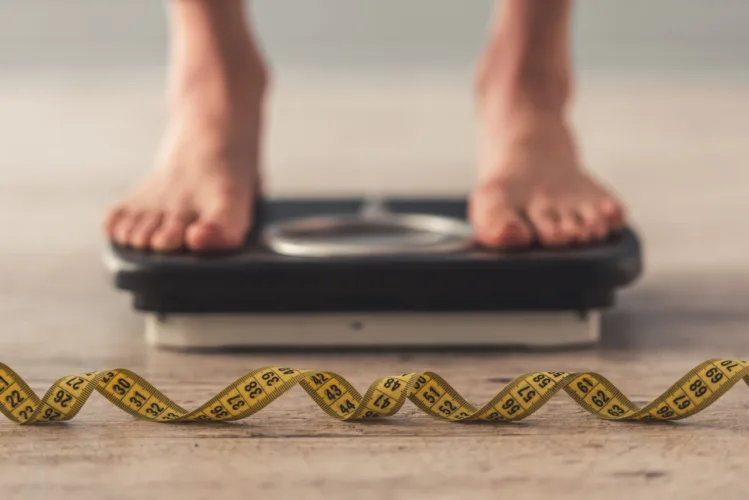
When it comes to eating disorders, there are plenty of misconceptions, opinions and assumptions surrounding the topic. Anorexia nervosa in particular is one of the eating disorders many struggle to understand.
Anorexia nervosa is an important eating disorder to have a well-rounded knowledge of as it is not only an extremely serious disorder, but misconceptions can lead to saying the wrong thing, which is often detrimental to the mental health of one battling anorexia.
In order to avoid this and instead help your loved one, or better understand anorexia for your own sake, it’s time to break down the myths from the facts.
What is true about anorexia nervosa?
According to a source in the National Library of Medicine, “Anorexia nervosa is defined by the restriction of nutrient intake relative to requirements, which leads to significantly low body weight. Patients with this eating disorder will have a fear of gaining weight … and a distorted body image with the inability to comprehend the seriousness of their condition.”
The DSM-5 has certain criteria that must be met when diagnosing anorexia nervosa, including:
- “Restriction of energy intake relative to requirements leading to a significantly low body weight in the context of age, sex, developmental trajectory, and physical health
- “Intense fear of gaining weight or becoming fat, even though underweight
- “Disturbance in the way in which one’s body weight or shape is experienced, undue influence of body weight or shape on self-evaluation, or denial of the seriousness of the current low body weight”
Signs of anorexia that may manifest will likely include:
- Sudden severe weight loss, and denial of the weight loss
- Constantly calorie counting
- Talking about feeling overweight (even when not)
- A fear of or repulsion to certain food groups resulting in elimination from their diet entirely
- Cramping or abdominal pain
- Creation of rituals around meal times, including rearranging food on their plate or eating food in a certain order
- Avoiding situations or events including food
- Cooking for others, but not eating
- Drinking large amounts of various beverages in order to fluid load and stave off hunger
There are many more signs of anorexia nervosa, but if you notice these signs in combination with the DSM-5’s criteria for the disorder, it is likely present to some extent in your life or the life of a loved one.
Myths and facts about anorexia nervosa
So if you have come to the conclusion that your loved one is struggling with disordered eating to some extent, you likely have developed certain thoughts and opinions in regards to the disorder and ways to best manage it.
But before you attempt to help your loved one, it’s important to ensure that what you understand about anorexia nervosa is based on facts, and not common myths you may hear in casual conversation.
1. Myth: Anorexia is focused on starvation
The truth is anorexia nervosa is actually based in a much deeper place and is often seen in conjunction with other mental health disorders including anxiety, depression, obsessive-compulsive disorder and unmanaged trauma.
Anorexia is often perceived as a desire for a perfect body or perfect weight achieved through restriction.
But the truth is, anorexia is often the result of a desire for control, perfectionism or as a response to an experience of trauma or stress. Feeling in control of their body’s appearance or over the food they consume may alleviate some of the anxieties felt in regards to lack of control, but the relief is only temporary and often leads to a worsening of the condition.
2. Myth: People choose anorexia
The fact is that no one chooses a mental health disorder. What may have been an initial choice of dieting or seeking a way to lose weight has the potential to turn into unhealthy restriction, but the challenges associated with anorexia, both physical and mental, are never ones individuals choose for themselves.
3. Myth: You have to be very thin to be diagnosed with anorexia
While those with advanced anorexia nervosa do have the appearance of muscle wasting and extremely minimal body weight, not everyone who struggles with anorexia will display this sign. Some individuals will be just out of the range of a healthy weight and will still appear relatively healthy in body weight, but may actually meet the criteria for the diagnosis.
Just because someone appears physically healthy does not mean their habits are – if over-exercising, calorie counting, restriction and like behaviors are present regardless of physical appearance, an eating disorder may be present.
4. Myth: Only women suffer from anorexia
Men, like women, encounter numerous social pressures and are expected to have a lean, muscular appearance. These expectations are often a triggering element in the development of an eating disorder for numerous men, including athletes. It is estimated that approximately 6.6 million males will struggle with an eating disorder at some point in their lives.
Seeking help for anorexia nervosa?
Whether you desire active treatment, want to learn more about eating disorders or just need to talk to someone, Seeds of Hope is here for help. Reach out to our offices by calling 610-644-6464 or by contacting us online anytime to get in touch with a counselor today.


